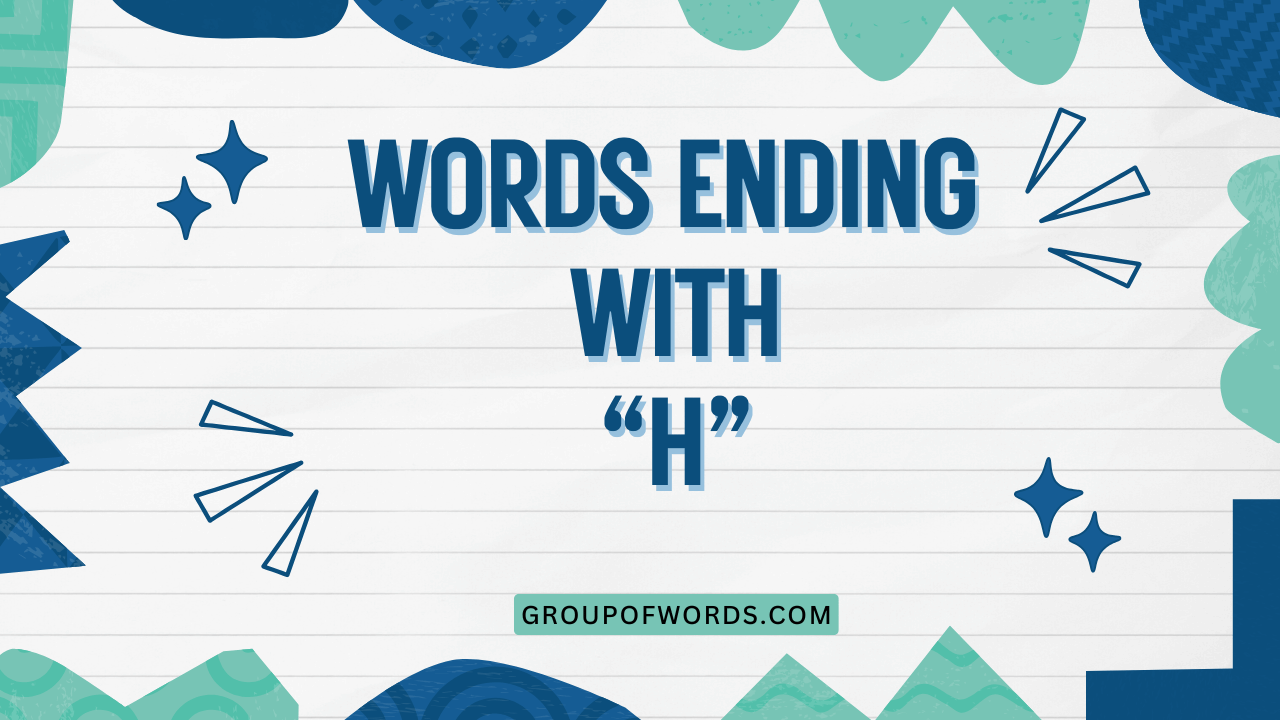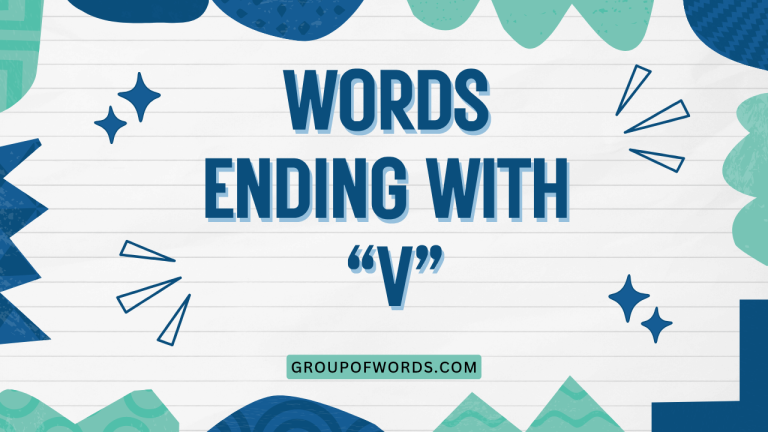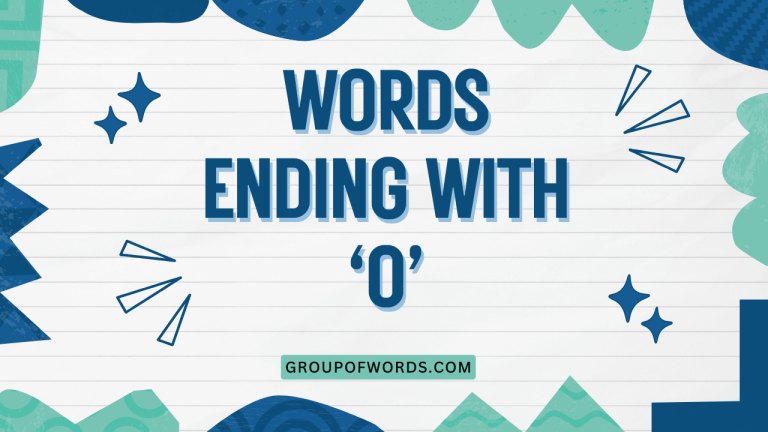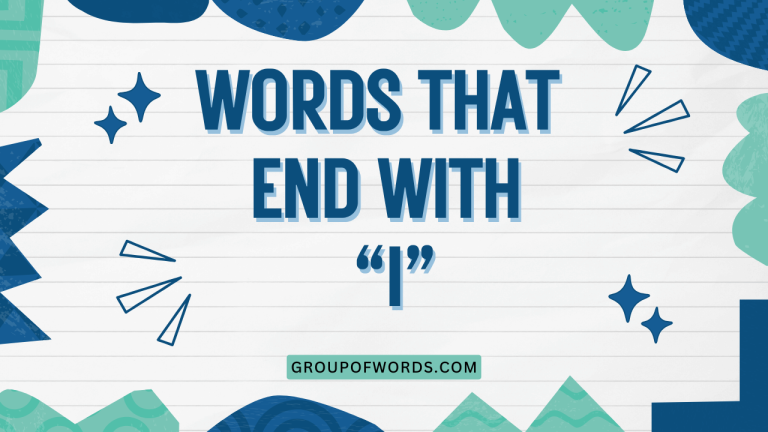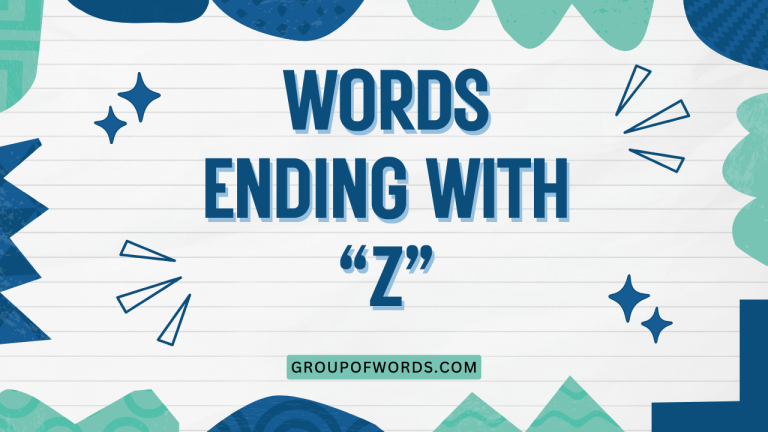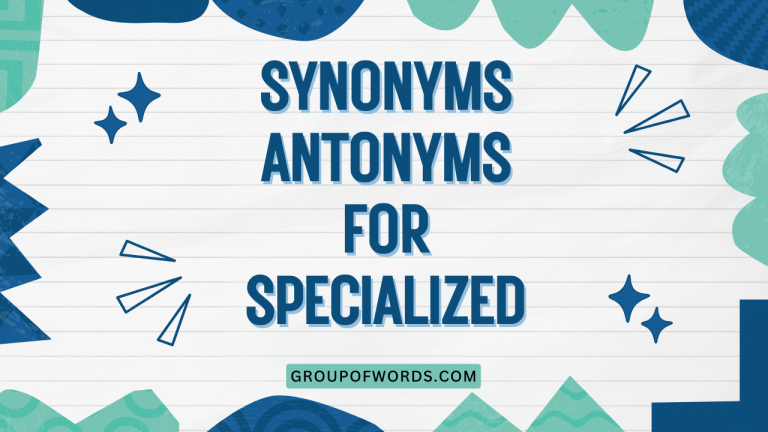Mastering Words Ending in ‘h’: A Comprehensive Guide
Words ending in ‘h’ are a fascinating aspect of English vocabulary, presenting unique pronunciation rules and grammatical behaviors. From simple nouns to complex verbs, understanding these words is crucial for both native speakers and English language learners.
This article provides a detailed exploration of words ending in ‘h’, covering their definitions, structural patterns, usage rules, common mistakes, and advanced topics. Whether you’re a student, teacher, or simply someone who enjoys learning about language, this guide will help you enhance your understanding and use of English.
Table of Contents
- Introduction
- Definition of Words Ending in ‘h’
- Structural Breakdown
- Types and Categories
- Examples of Words Ending in ‘h’
- Usage Rules
- Common Mistakes
- Practice Exercises
- Advanced Topics
- FAQ
- Conclusion
Definition of Words Ending in ‘h’
A word ending in ‘h’ is simply any word in the English language that has ‘h’ as its final letter. These words can belong to various parts of speech, including nouns, verbs, adjectives, and adverbs.
Their pronunciation and grammatical function are determined by the surrounding letters and the specific rules of the English language. The ‘h’ at the end of a word can be silent, as in “cheetah,” or it can contribute to the sound of the word, as in “oath.”
Understanding words that end in ‘h’ involves recognizing their diverse origins and how they have evolved within the English language. Many such words have roots in Germanic, Latin, or Greek, which influence their spelling and pronunciation.
Recognizing these patterns can help learners predict how to pronounce new words ending in ‘h’ and understand their grammatical roles within a sentence.
Structural Breakdown
The structure of words ending in ‘h’ varies depending on their etymology and grammatical function. Generally, the ‘h’ often follows a vowel or a consonant-vowel combination.
The preceding vowel can be short or long, influencing the overall sound of the word. In some cases, the ‘h’ may be part of a digraph (a combination of two letters representing one sound), such as ‘sh’ or ‘ch,’ although these digraphs usually appear at the beginning or middle of words, not at the end.
The presence of the ‘h’ can alter the pronunciation of the preceding vowel or consonant, leading to diverse phonetic outcomes.
Here are some common structural patterns:
- Vowel + h: Examples include ah, oh, and in some pronunciations, the end of cheetah.
- Consonant + Vowel + h: Examples include oath, wraith, and moth.
- Digraph + h: While less common at the end of words, understanding digraphs like ‘sh’ and ‘ch’ is crucial for overall word recognition.
Types and Categories
Words ending in ‘h’ can be categorized based on their part of speech. Each category has its unique characteristics and usage patterns.
Understanding these categories helps in correctly using these words in sentences.
Nouns
Nouns ending in ‘h’ represent people, places, things, or ideas. They can be concrete (tangible) or abstract (intangible).
Examples include “oath,” “wraith,” and “cheetah.” Some nouns ending in ‘h’ are singular, while others can be pluralized by adding an ‘s’ or ‘es’, although this is less common. The grammatical gender of nouns ending in ‘h’ is generally neutral, unless the noun specifically refers to a male or female entity.
Verbs
Verbs ending in ‘h’ describe actions or states of being. These are less common than nouns ending in ‘h’.
An example, although archaic, could be “inthrallth”, meaning to enslave. Typically, verbs ending in ‘h’ require careful conjugation to fit the tense and subject of the sentence.
They play a crucial role in conveying the dynamic aspects of language.
Adjectives
Adjectives ending in ‘h’ describe or modify nouns. They provide additional information about the qualities or characteristics of the nouns they modify.
Adjectives ending in ‘h’ are relatively rare. The adjective “high” ends in a ‘gh’, which is pronounced as an ‘h’ sound in some dialects, although the written form is different.
Adverbs
Adverbs ending in ‘h’ modify verbs, adjectives, or other adverbs. They provide information about how, when, where, or to what extent an action is performed.
Similar to adjectives, adverbs ending in ‘h’ are uncommon, mostly found through dialectical pronunciations rather than standard written forms.
Interjections
Interjections are words or phrases used to express sudden emotions or reactions. Although rare, interjections ending in ‘h’ could exist, typically used to emphasize a particular feeling or response.
Examples might include expressions of surprise or dismay in certain dialects.
Examples of Words Ending in ‘h’
This section provides extensive examples of words ending in ‘h’, categorized by their part of speech. Each table includes a variety of words to illustrate the different forms and usages.
Nouns Examples
This table lists various nouns that end with the letter ‘h’. These nouns represent a range of concrete and abstract concepts, showcasing the diversity of words ending in ‘h’.
| Noun | Definition | Example Sentence |
|---|---|---|
| Oath | A solemn promise | He swore an oath to tell the truth. |
| Wraith | A ghost or spirit | She saw a wraith in the old house. |
| Cheetah | A fast-running cat | The cheetah is the fastest land animal. |
| Heath | An area of open uncultivated land with low shrub vegetation | They walked across the windswept heath. |
| Wrath | Extreme anger | The king’s wrath was feared by all. |
| Cloth | A piece of woven fabric | She used a cloth to clean the table. |
| Sloth | Laziness; a slow-moving animal | His sloth prevented him from finishing the project. |
| Truth | The state of being true | The truth will always come out. |
| Myth | A traditional story | The story of Icarus is a well-known myth. |
| North | The direction opposite south | We drove north to reach the mountains. |
| South | The direction opposite north | They migrated south for the winter. |
| Length | The extent of something from end to end | The length of the rope was insufficient. |
| Width | The measurement of something from side to side | The width of the table was too narrow. |
| Depth | The distance from the top to the bottom | The depth of the ocean is immense. |
| Growth | The process of increasing in size | The plant showed significant growth. |
| Health | The state of being free from illness or injury | Good health is essential for a happy life. |
| Strength | The quality or state of being strong | His strength allowed him to lift the heavy box. |
| Both | Referring to two things or people | Both of them enjoyed the movie. |
| Month | A unit of time | February is the shortest month of the year. |
| Earth | The planet we live on | The Earth revolves around the sun. |
| Birth | The act of being born | The baby’s birth was a joyous occasion. |
| Death | The end of life | The news of his death saddened everyone. |
| Girth | The measurement around something | The girth of the tree was impressive. |
| Youth | The period between childhood and adulthood | His youth was filled with adventure. |
| Tooth | A hard, bony enamel-coated structure in the jaws | He had a painful toothache. |
Verbs Examples
While verbs ending in ‘h’ are rare in modern English, this table includes examples from older texts or specific dialects to illustrate their potential usage. Note that some of these might be archaic or dialect-specific.
| Verb | Definition | Example Sentence |
|---|---|---|
| Inthrallth (Archaic) | To enslave or captivate | The sorcerer sought to inthrallth the kingdom. |
| Taketh (Archaic) | Old form of “takes” | The knight taketh his sword. |
| Hath (Archaic) | Old form of “has” | He hath completed his quest. |
| Seeth (Archaic) | Old form of “sees” | She seeth the future in her dreams. |
| Doth (Archaic) | Old form of “does” | He doth protest too much. |
| Sayeth (Archaic) | Old form of “says” | The prophet sayeth, “Repent!” |
| Goeth (Archaic) | Old form of “goes” | The river goeth to the sea. |
Adjectives Examples
Adjectives that definitively end in ‘h’ are uncommon. However, some words ending in ‘gh’ are pronounced with an ‘h’ sound in certain dialects, effectively functioning as adjectives ending in ‘h’ phonetically.
This table illustrates such cases.
| Adjective | Definition | Example Sentence |
|---|---|---|
| High (pronounced with emphasis on the ‘h’ sound in some dialects) | Of great vertical extent | The high mountain peak was covered in snow. |
Adverbs Examples
Similar to adjectives, adverbs ending in ‘h’ are rare. Their existence is primarily found in dialectal variations or archaic language.
This table provides potential examples based on pronunciation.
| Adverb | Definition | Example Sentence |
|---|---|---|
| Nigh (pronounced with emphasis on the ‘h’ sound in some dialects) | Near | The time is drawing nigh. |
Usage Rules
The usage rules for words ending in ‘h’ are primarily determined by their part of speech and their specific meaning. Nouns must agree in number with their verbs, and adjectives must correctly modify nouns.
Verbs must be conjugated according to tense and subject. Here are some general guidelines:
- Nouns: Pay attention to singular and plural forms. Some nouns ending in ‘h’ are uncountable (e.g., “truth”).
- Verbs: Ensure correct conjugation based on the tense and subject of the sentence (though verbs ending in ‘h’ are rare in modern usage).
- Adjectives: Place adjectives before the nouns they modify.
- Adverbs: Position adverbs to effectively modify verbs, adjectives, or other adverbs.
Pronunciation of words ending in ‘h’ can vary. In some words, the ‘h’ is silent, while in others, it is pronounced.
Context and regional accents can also influence pronunciation. Always consult a dictionary or reliable source for accurate pronunciation.
Common Mistakes
One common mistake is mispronouncing words ending in silent ‘h’. For example some learners may mistakenly pronounce the ‘h’ at the end of ‘cheetah’.
Another mistake is using archaic verb forms like “hath” or “doth” in modern contexts. Here are some examples of common mistakes and their corrections:
| Incorrect | Correct | Explanation |
|---|---|---|
| The cheetahs are run fastly. | The cheetahs run fast. | “Fast” is already an adverb; “fastly” is incorrect. |
| He doth go to the store. | He goes to the store. | “Doth” is an archaic verb form not used in modern English. |
| The truth are important. | The truth is important. | “Truth” is an uncountable noun and takes a singular verb. |
| I saw a wraiths. | I saw a wraith. | “Wraith” is already a singular noun. Plural form is wraiths, but the article ‘a’ indicates that a singular form should be used. |
| Her health are good. | Her health is good. | “Health” is an uncountable noun and takes a singular verb. |
Practice Exercises
Test your understanding with these practice exercises. Choose the correct word or form to complete each sentence.
| Question | Answer |
|---|---|
| 1. He swore an ______ to defend his country. (oath / oth) | oath |
| 2. The ______ is the fastest land animal. (cheetah / cheeta) | cheetah |
| 3. The ______ of the rope was too short. (length / lenth) | length |
| 4. She walked across the windswept ______. (heath / heth) | heath |
| 5. ______ of them enjoyed the concert. (Both / Bothe) | Both |
| 6. February is the shortest ______ of the year. (month / monthe) | month |
| 7. He was consumed by ______. (wrath / wrathe) | wrath |
| 8. The ______ of the tree was impressive. (girth / girt) | girth |
| 9. The news of his ______ saddened everyone. (death / dethe) | death |
| 10. The ______ revolves around the sun. (Earth / Erth) | Earth |
Here are some more complex exercises that require you to construct sentences using words ending in ‘h’ correctly.
| Instruction | Example Answer |
|---|---|
| 1. Use “oath” in a sentence. | The witness took an oath to tell the truth. |
| 2. Use “cheetah” in a sentence. | The cheetah sprinted across the savanna. |
| 3. Use “length” in a sentence. | The length of the river is several miles. |
| 4. Use “heath” in a sentence. | They hiked across the desolate heath. |
| 5. Use “both” in a sentence. | Both sisters are talented musicians. |
| 6. Use “month” in a sentence. | Next month we will celebrate her birthday. |
| 7. Use “wraith” in a sentence. | A ghostly wraith appeared in the old castle. |
| 8. Use “truth” in a sentence. | The truth is often difficult to accept. |
| 9. Use “birth” in a sentence. | The celebration of the new baby’s birth was joyous. |
| 10. Use “youth” in a sentence. | During his youth, he traveled the world. |
Advanced Topics
For advanced learners, exploring the etymology and historical usage of words ending in ‘h’ can provide deeper insights. Investigating how these words have evolved over time and across different dialects can enhance understanding of the English language’s complexities.
For instance, studying Old English texts reveals how words like “hath” and “doth” were once common verbs. Understanding the influence of other languages, such as Germanic and Latin, on the formation and pronunciation of these words can also be beneficial.
Another advanced topic is the phonetic analysis of words ending in ‘h’. Analyzing the sounds that precede and follow the ‘h’ can reveal patterns and rules that govern pronunciation.
This includes studying the influence of vowels, consonants, and digraphs on the ‘h’ sound. Additionally, exploring the use of words ending in ‘h’ in literature and poetry can provide insights into their stylistic and rhetorical effects.
Authors often use specific words to evoke certain emotions or create particular imagery.
FAQ
Here are some frequently asked questions about words ending in ‘h’:
- Why is the ‘h’ silent in some words but not in others?
The pronunciation of ‘h’ depends on the word’s origin and historical evolution. Some words have retained their original pronunciation, while others have undergone changes over time. The ‘h’ is often silent when it follows certain consonants or vowels, particularly in words of French origin.
- Are there any rules for pluralizing nouns ending in ‘h’?
Most nouns ending in ‘h’ are pluralized by adding ‘s’ (e.g., oaths, cloths). However, some nouns may have irregular plural forms or may be uncountable and not have a plural form at all (e.g., truth, health).
- How can I improve my pronunciation of words ending in ‘h’?
Practice listening to native speakers and repeating the words. Pay attention to the context and the surrounding sounds. Use dictionaries and online resources to check the correct pronunciation. Focusing on minimal pairs (words that differ by only one sound) can also be helpful.
- What is the origin of words like “hath” and “doth”?
These words are archaic verb forms from Old English. They were commonly used in earlier periods of the English language but are now rarely used in modern English, except in specific historical or literary contexts. They are related to the modern words “has” and “does,” respectively.
- Are there any common idioms or expressions that use words ending in ‘h’?
Yes, there are several idioms and expressions that use words ending in ‘h’. Examples include “swear an oath,” “in good health,” and “the moment of truth.” Understanding these expressions can enhance your fluency and comprehension of English.
- How do regional accents affect the pronunciation of words ending in ‘h’?
Regional accents can significantly influence the pronunciation of words ending in ‘h’. Some accents may pronounce the ‘h’ more strongly, while others may omit it entirely. Understanding these variations can help you better comprehend different speakers and dialects.
- Can words ending in ‘gh’ be considered as ending in ‘h’ in some contexts?
Yes, in some dialects and phonetic analyses, words ending in ‘gh’ where the ‘gh’ is pronounced as an ‘h’ sound can be considered as functionally ending in ‘h’. This is more about pronunciation than the written form.
- How can I identify the part of speech of a word ending in ‘h’?
Context is key. Look at how the word is used in the sentence. Does it name something (noun), describe something (adjective), show an action (verb), or modify a verb or adjective (adverb)? Also, consider the surrounding words and their relationships to the word in question.
Conclusion
Mastering words ending in ‘h’ involves understanding their diverse grammatical functions, pronunciation rules, and historical origins. While some words, like “oath” and “cheetah,” are commonly used, others, such as archaic verb forms, are less frequent but important for understanding older texts.
By paying attention to usage rules, avoiding common mistakes, and engaging in practice exercises, learners can enhance their vocabulary and improve their overall English proficiency.
Remember to consult dictionaries and listen to native speakers to refine your pronunciation. Continue to explore the etymology and historical usage of these words to deepen your understanding of the English language.
With consistent effort and practice, you can confidently and accurately use words ending in ‘h’ in your writing and speaking.
